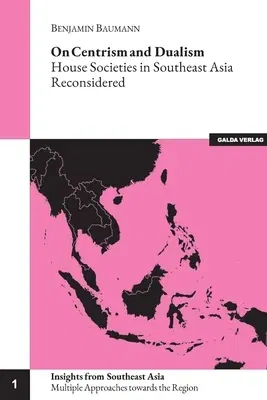This book provides an overview of the anthropological debate on house
societies, pertaining particularly to Southeast Asian social formations.
The book's point of departure is a comparative model of social
formations in Southeast Asia outlined by Shelly Errington. Although this
model features prominently in anthropological discussions of the region,
no detailed analysis of this comparative approach exists. This might be
attributed to the fact that Errington's model is theoretically dense,
alluding to the rather complicated anthropological field of kinship
studies. Errington's model combines premises of Lévi-Strauss' Structural
Anthropology with Clifford Geertz' symbolic or interpretative paradigm
and situates the synthesis in the anthropology of insular Southeast
Asia. This book traces the genealogy of this model and provides detailed
explications of its basic theoretical premises before it explores the
concept of house societies and how it is applied by Errington to
approach and compare Southeast Asian social formations. The book reveals
the structuralism that speaks through Errington's comparative approach
by discussing the concept of transformation and indicates the potentials
and limitations a typology of different house societies has for the
anthropology of Southeast Asia. ABOUT THE SERIES Developments in the
field of area studies - goaded by the analytical deconstruction of world
regions from their geopolitical sense - have deeply affected the
knowledge production from societies and cultures located in the
politicized compartmentalization of the globe. With this series, the
editors and authors wish to contribute to a reformulation of
sensibilities in area studies which emphasizes the epistemic value of
contextualized knowledge production. Starting with the notion of
Southeast Asia, books published in this series will contribute to a more
nuanced understanding of regionality based on a multidisciplinary
approach. The series represents an outlet for young schol


